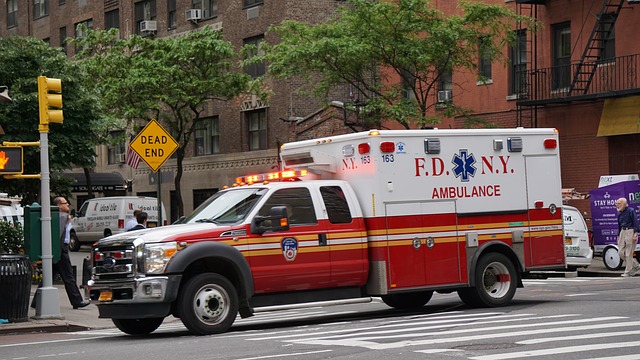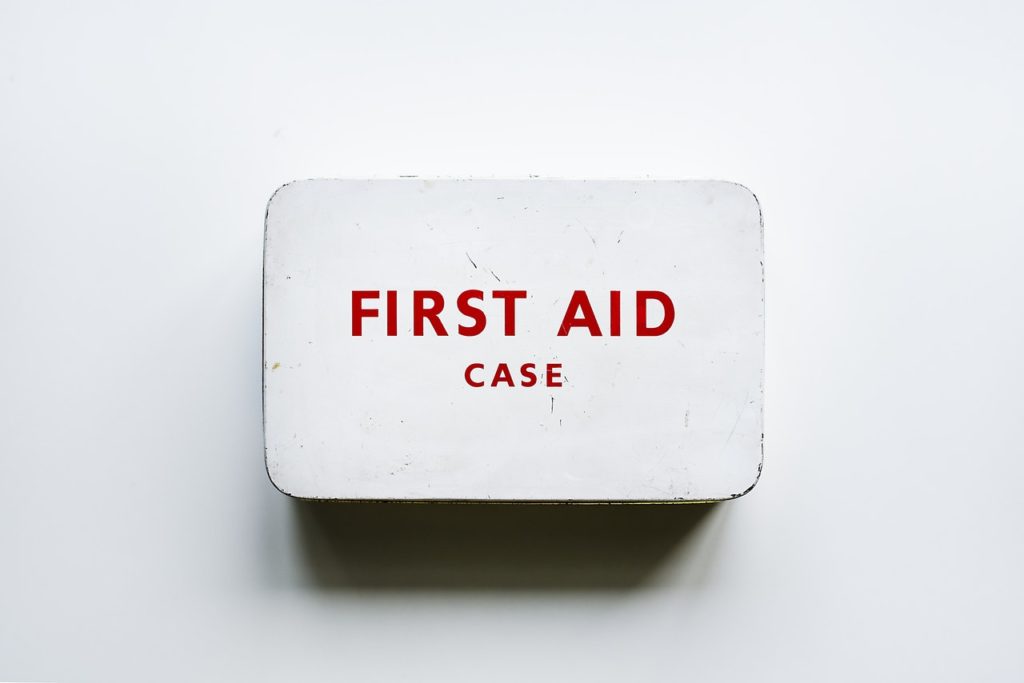Be Prepared for Workplace Emergencies of All Kinds
Workplace emergencies can include a number of different situations. They might range from an individual becoming ill or injured to a weather emergency or natural disaster. When an emergency occurs, being able to handle it in the right way is essential. Whether you own the business and need to make sure your employees know what to do, or you’re an employee who wants to make sure they’re equipped to handle any problems, there are lots of things to consider. Emergencies need to be dealt with swiftly and appropriately, but there can be many things involved in doing it right. Use this guide to make sure you’re facing it properly.
Know What Sort of Emergencies Could Occur
Firstly, it’s a good idea to know just what sort of emergencies could occur in your workplace. There are some things that could happen just about anywhere and in any type of business. Someone having an accident or becoming ill, or something like a fire occurring could happen anywhere. However, some hazards could be specific to your business or your location. For example, perhaps your company handles hazardous chemicals or you are located somewhere where earthquakes can take place. Knowing what could happen is the first step to making sure you’re prepared to respond.

Understand Company Protocols
Company procedures are important to have during an emergency. If you have predetermined steps to follow, it makes it a lot easier to stay calm when something happens. It also means you can be sure that you remain compliant and don’t do anything that could eventually reflect badly on the company. If you’re a business owner, you need to make sure that the right protocols are put into place for dealing with various emergencies. Employees should receive training, and there should also be easy ways to reference the necessary steps to take in different situations.
You might want to know things like who you should inform when an emergency takes place. Perhaps you need to make a record of an incident happening, or there is a specific way that you are supposed to raise the alarm when an event occurs. You might also need to know things like escape routes or how to help disabled employees to leave the building, especially if they are not allowed to use the elevators. The protocols and guidance in place will generally be influenced by relevant legislation and regulations, as well as company policy, safety issues and the type of emergency.
Understand the Law
Knowing your legal duties during an emergency in the workplace is essential. It will help to create the correct protocols and to take the right action when an emergency occurs. There might be certain regulations that apply to your industry or to businesses carrying out the sort of work you do. There are also some laws that all businesses must follow. Whether you’re the big boss or a lowly underling, having a good understanding of the law where the company’s preparation for and response to emergencies is concerned is essential. Of course, people who have more responsibility and power have more of a duty to understand and follow the law.
Learn First Aid
Many people are unsure about how they might be able to help during an emergency in the workplace. One way that almost everyone could be of assistance is by getting something like BLS Certification in order to enable them to provide first aid. This might be required during huge disasters or just when one person is hurt or taken ill. Basic first aid skills don’t take long to learn, and you might also want to learn skills such as CPR or using a defibrillator. You can use a resource like the National CPR Foundation to learn some of these essential first aid skills. It’s also important to keep your skills up to date. When you gain a first aid certificate, it will usually last a few years before you need to renew it. Best practices change all the time, so it’s important to know what the current thought is on using different first aid practices. For example, recent recommendations have advised focusing on chest compressions and foregoing breaths during CPR.

Be Prepared for a Range of Situations
Preparation is usually key when dealing with a workplace emergency. It’s important to have the correct procedures and necessary equipment in place before anything happens. There are all kinds of things that might occur, but preparing for many of them might require the same actions. An evacuation plan can help with a number of emergencies, from fires to chemical spills. First aid training for staff helps them to address a wide range of medical emergencies, from choking to stroke. You might have a handbook for employees to refer to during emergency situations so that they know what to do. While the business owner and managers should especially know how to respond to an emergency, everyone at every level should have some idea of what steps they need to take.
Maintain Emergency Tools and Warning Systems
If the company has any tools or warning systems that are used during an emergency, it’s important to maintain them. This might include things like fire alarms, sprinkler systems, and fire extinguishers. It could also include an alert system that you use to warn employees of a situation via text or some other method. Whose responsibility it is to check that these things are working can depend on the hierarchy in the company and the division of duties. Your company might appoint someone specifically to keep an eye on these things, or you might have a maintenance person who watches over these things.
Know How to Keep Yourself Safe
In many emergency situations, it’s important to know how to keep yourself safe, as well as how to help others. While you should know how you can contribute to a group effort and help those who might be less able to help themselves, protecting yourself first ensures you can help other people. Of course, if you’re an employee, your employer can help you to learn about how to protect yourself in an emergency. But you can also take steps to educate yourself and be prepared for different types of emergency.
Understand Which Emergency Services to Use and When
The emergency services are clearly going to be useful in a range of situations. However, it’s important to know when to call on them and which ones to use for different situations. Sometimes it might be clear that you need an ambulance, the fire department or the police to attend an emergency. Other services can be useful too, such as poison control. But it might not always be clear who you should call when it’s necessary to do so and what information you need to give them. The appropriate services to use and when to use them will partly depend on the type of emergency, but can sometimes be influenced by company policy too.
Check Who Is in Charge of Emergencies
Having someone in charge of responding to emergencies can help to keep everything organized and prevent chaos if something happens. Many offices or other places of work will have a designated first aid provider, and there could also be people who take on other roles. For example, someone might be in charge of evacuating the building if the fire alarm sounds. One person might have the responsibility of deciding when the emergency services or other outside sources need to be called in. Someone could be in charge of running drills for earthquakes, fires or other emergency situations that you need to prepare for. Everyone at the company should know who is in charge when an emergency situation arises so that they know who to go to.
Emergency Training
First aid training can be helpful in an emergency, but there are other types of training that might be helpful too. Different types of emergency training can be useful for ensuring everyone knows what to do when something happens. Training could include tips for specific situations or advice about how to create the right protocols for employees to follow. People at all levels of the business could benefit from training on handling emergencies, but it’s also worth having tailored training to people who do different jobs. Some types of training will be more beneficial to some than others because it will be related to something they are more likely to experience.
Work Together with Others
Being able to work together as a team is often essential when dealing with an emergency in the workplace. You need to be able to share information, keep up with what’s happening and give each other a helping hand to ensure everyone is safe. When people have different roles to play, this can help everyone to work together. It can also be useful if people know who might need extra help in an emergency or if certain people are aware of specific health problems that some face so they know how to provide assistance.
Addressing emergencies in the workplace can be a tough matter to tackle, but it’s vital to have a good idea of how to do it to keep everyone safe.




